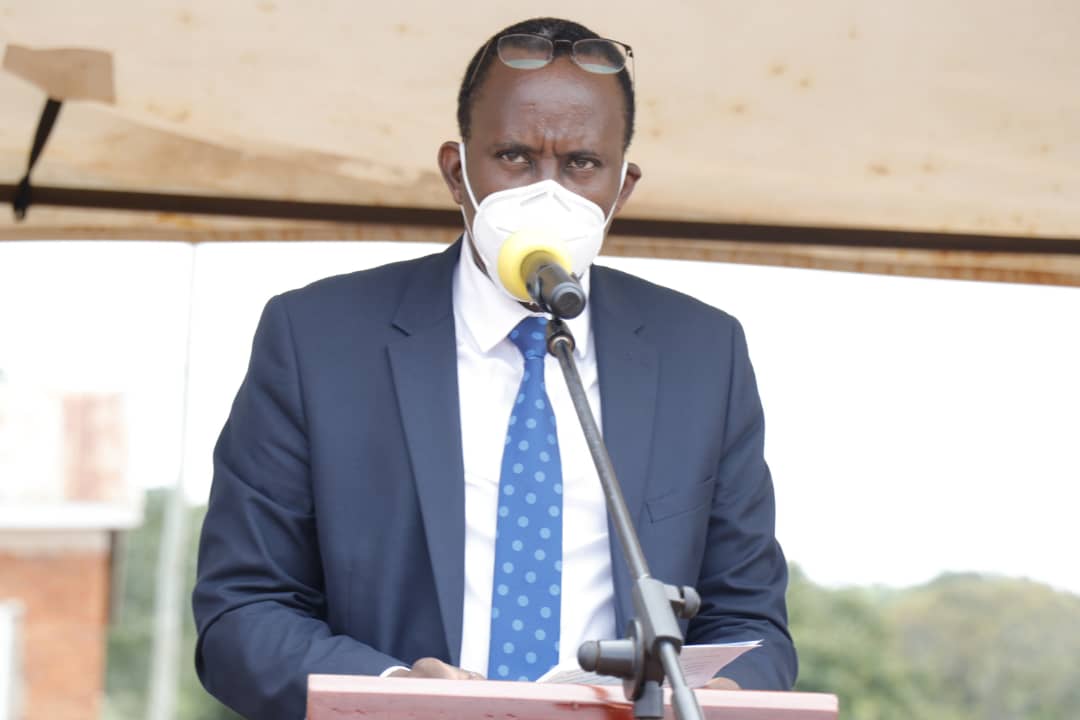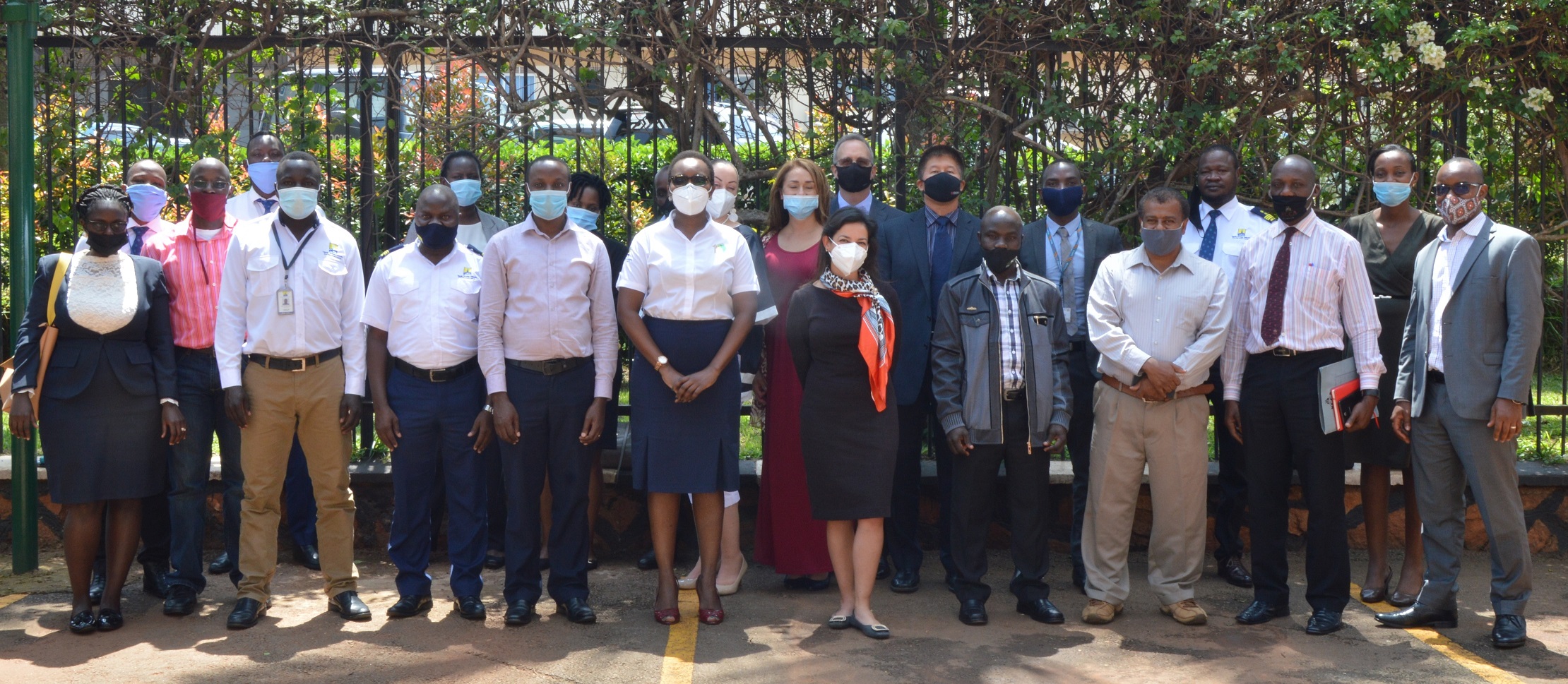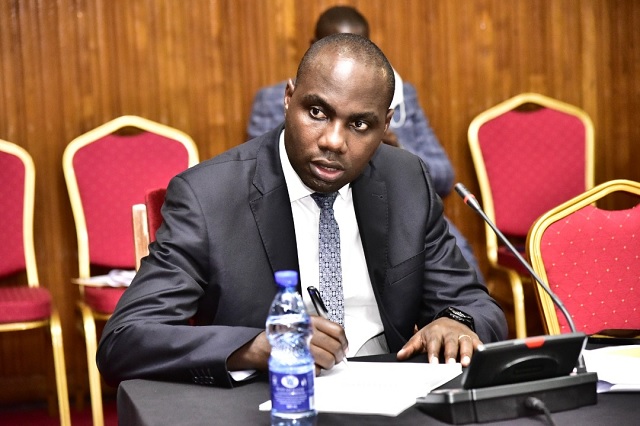Six months after RippleNami® Uganda committed to the Government of Uganda, to empower the Uganda Revenue Authority (URA) with cutting edge traceability and transparency technology for improving rental income tax compliance, the project has kicked off with both parties promising a win-win for both taxpayers and the Government.
On June 05th 2020 RippleNami® Uganda and the Ministry of Finance, Planning, and Economic Development (MoFPED), signed an agreement for the former to deliver the Rental Tax Compliance System (RTCS). The system is a blockchain data visualisation platform that will integrate various types of data from selected government Ministries, Departments and Agencies (MDAs), matching properties in the Greater Kampala Metropolitan Area to their true individual or corporate owners within the URA tax register.
Additionally, RippleNami Uganda will use the collected data and on-ground teams to classify the nature of occupancy, i.e., whether a property is owner-occupied or rented.
RippleNami will also provide a digital address for each property identified for ease of reference.
Apart from URA, other participating MDAs include: Ministry of Lands, Housing and Urban Development, Kampala Capital City Authority, National Identification and Registration Authority, National Water and Sewerage Corporation, National Information Technology Authority, Uganda Communications Commission, and the Ministry of Local Government.

“RippleNami is thrilled to partner with the Government of Uganda through the Ministry of Finance, Planning and Economic Development as well as other participating government MDAs spearheaded by URA to implement the world’s first-ever modern tax system that leverages blockchain technology – the Rental Tax Compliance System,” said Jaye Connolly-Labelle, Chairman & Chief Executive Officer, Ripplenami, Inc, a company affiliated with RippleNami Uganda.
“At RippleNami, we are driven by the philosophy that a ripple of data turns into a tsunami of actionable information.
The RTCS we are building, shall integrate the data silos in the various MDAs and store the data securely leveraging Hyperledger blockchain technology. The RTCS shall make it easier for the Government to make data-driven decisions, not just for modern tax administration, but also for a wide range of other decisions necessary for better planning and enhanced service delivery,” she added.
John Rujoki Musinguzi, the URA Commissioner General, said the RTCS is part of a range of technologies that URA is implementing to improve efficiency and service delivery as well boosting voluntary compliance and ultimately increase revenue generation.
“The RTCS will help us settle the long-standing complications in identifying the right landlords of these properties we see around and what income is likely to be coming out of such properties. It is one of those projects that will cause a win-win situation for everybody by ensuring that all landlords who earn rental income contribute their fair share to the revenue basket. This will also create a level playing field in the real estate market, because non-compliant landlords, will no longer be able to underprice their space to the disadvantage of compliant landlords,” he added.
Under the Income Tax law, individual landlords earning more than UGX2, 820,000 annually, are liable to pay 20% rental income tax, after allowable deductions. Non-individual landlords pay 30% of the chargeable rental income earned after removing allowable deductions.
Data Protection and Security Jaye, assured the public that the RTCS has been designed and built, in full conformity to Uganda’s data protection laws.
“We are committed to building a secure, unalterable, transparent, and reliable system that offers real-time retrievability for authorised government agencies that meets the standards set out in the Data Protection and Privacy Act, 2019. RTCS will enhance government efficiency, and further complement the ongoing national e-government initiatives,” she said.
“We are excited about this project and the difference it’s going to make to the Ugandan people and the Ugandan economy’s overall growth. RTCS will broaden the tax base, increase revenue collection as well as transfer skills to Ugandans working directly and indirectly on the project,” she added.
Win-win for taxpayers and Government
Mr. Musinguzi said that the Rental Tax Compliance System is part and parcel of other technology initiatives that URA is rolling out, such as the Digital Tracking Solution (DTS) and Electronic Fiscal Receipting and Invoicing System (EFRIS), all designed to improve the culture of tax compliance and subsequently increase revenue generation for national development.
“We have a dream at URA that we can double our tax to GDP ratio. We believe that we can raise enough revenue that can fund our national budget, so that we will not have to live on loans, and indebtedness. This is a mission that we cannot succeed at alone. We, therefore, call upon the support of all taxpayers, citizens and entrepreneurs in our country, to cooperate and move with us in this new direction,” he noted.

“Now that the RTCS has started, I encourage our taxpayers to take advantage of our voluntary compliance amnesty. The company (RippleNami) is already here, and they are having meetings with the different MDAs that will be providing the data. We will soon start matching that data and make some analysis and conclusions out of it. Ahead of that, taxpayers can take advantage of this window to voluntarily declare especially now that a law has been signed into place to facilitate this by waiving all penalties and interests. Going forward, voluntary declarants will only have to pay the principal tax without suffering any penalties or interest,” he said.
He also allayed landlords’ and tenants’ fears that RTCS will not increase rent or the cost of doing business.
“With RTCS, everyone is a winner. The biggest victims – for the existing under-declaration of rental earnings – have been the tenants. In some instances, while the tenant has been paying the full rent to the landlord, they haven’t been able to get legitimate receipts that would enable them to claim tax credits for their respective tax returns.
For instance, you find a tenant paying rent of UGX3 million, but they have been getting a falsified receipt of UGX300, 000 to help the landlord not to declare the right rental income. With this system, the tenants will take the full advantage of declaring the accurate rental expenses incurred and claim their tax credits,” he said.
“The landlords, on the other hand, will not be paying tax on income they have not earned. They will declare only what they have earned, and that will be the basis on which rental tax will be assessed. Ultimately, as a country, we will improve our revenue collection – a win-win for everybody,” added.
Credit: PML Daily
![]()


























